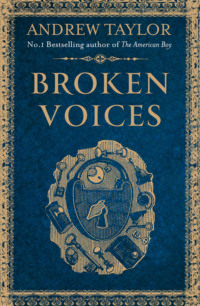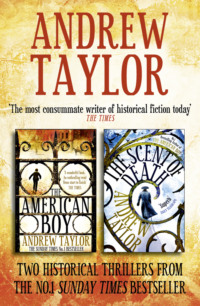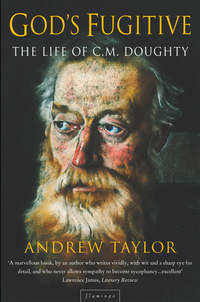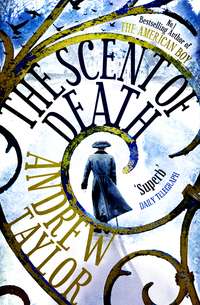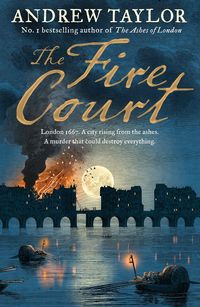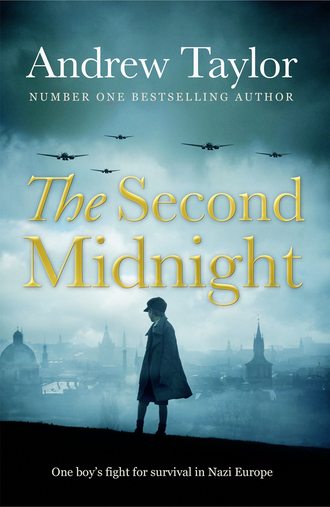
Полная версия
The Second Midnight
The footsteps returned and Hugh held his breath. The first blow caught him by surprise, as it always did. In the interim between beatings, you forgot that it hurt so much.
The cane wrapped around his buttocks. It felt like a branding iron. Despite himself, Hugh yelped. He pressed himself forward against the back of the chair. His hands dug into the arms.
The footsteps slowly retreated. Once again, they advanced.
The cane seemed to land on precisely the same spot. This time, Hugh cried out. His father said nothing, though his breathing was more laboured than usual; he never spoke when administering punishment.
Hugh tried to concentrate on counting. You never knew in advance how many strokes you were going to get. Four was probably the average, at least for himself and Stephen, though it was at least a year since Stephen had been beaten; Meg usually had three, but then she was a girl. Five was by no means unknown. Stephen boasted that he had been given six on two occasions.
Five – Six. Hugh stirred, but even the slightest movement made the pain worse. His arms and legs were trembling. To his horror, he realized that the footsteps were again coming towards him.
Seven.
Eight.
Hugh’s legs buckled. He was crying now – the pain was so great that he no longer cared. His tears glistened on the purple wool.
‘Stand up,’ snapped his father. ‘Can’t you even take your punishment like a man?’
There was a clatter as his father returned the cane to its corner. Metal and flint rasped together and the smell of tobacco filled the air.
Hugh levered himself into an upright position. For a few seconds he stared stupidly at the trousers which shackled his ankles. He bent down with difficulty and tugged them up to his waist. The pain was no longer blindingly acute; it had softened, if that was the right word, to a dull, angry throb. Every movement made it worse.
Alfred Kendall was leaning on the desk; he held the Gold Flake in his left hand. His thumb and forefinger were stained yellow, like the ragged fringe of his military moustache.
He exhaled a lungful of smoke in the direction of his son. ‘Well?’
Hugh had missed his cue. The ritual demanded that the victim should thank the executioner. It was an exquisite refinement: you thanked someone for inflicting pain on you, thereby implying you deserved or even desired it. It suddenly became very important to Hugh that he should not make the required response.
‘I am waiting, Hugh.’
His father walked slowly towards him. With him he brought his characteristic smell – a compound of stale tobacco, hair oil and a musty, sooty odour which Hugh associated with suburban trains. Without warning, Kendall nipped the lobe of Hugh’s ear between finger and thumb and twisted it through ninety degrees.
Hugh gasped and tried to pull his head away.
‘You always were a weakling,’ his father observed. His grip tightened on the lobe. ‘A real boy of your background would have learned to stand punishment years ago. I’m still waiting.’
It was at this moment that Hugh decided never to forgive his father in any circumstance. Aloud he said: ‘Thank you, sir.’
Alfred Kendall released the ear and nodded towards the door. Hugh, who was expert at interpreting his father’s nods, opened the door and stood aside to allow his father to pass through first. Kendall set great store by the courtesy that men owed to women and the young to their elders and betters. It was a sign, he often remarked, of good breeding.
His father flung open the kitchen door and motioned to Hugh to stand beside him in the doorway.
They were all in there. The opening of the door had cut off both their conversation and their movements, leaving a strained, still silence. Hugh’s mother was standing by the gas cooker, stirring the contents of a saucepan; the rich smell of mutton stew made his mouth water. Meg, still in her school uniform, was at the kitchen table doing her homework. Stephen sat opposite her; he had changed since he returned from the bank, and the Star was spread open in front of him. Hugh was sure that they had been talking about him. He knew from experience that the sound of a caning was clearly audible from the hall.
Kendall sucked on his cigarette. ‘Hugh will go straight to bed. He will have nothing to eat tonight and no one will visit him. Do I make myself clear?’
Mrs Kendall covered the saucepan with its lid. ‘Alfred, perhaps I should—’
‘I’ve made up my mind, Muriel. The boy’s enough of a namby-pamby as it is, without you trying to make it worse. We’ll have dinner at the usual time.’
He laid a heavy hand on Hugh’s shoulder, turned him around and pushed him towards the stairs.
The stairs were a form of torture. Hugh climbed slowly, clinging to the banister; his body protested at every step. He heard his father go back into the dining room and close the door.
From the landing another flight of stairs wound upward to the attic where Meg slept. Hugh could just remember the time when the room had belonged to a maid. On the right was the big bedroom at the front, where his parents slept; Stephen had the room opposite. Hugh’s was farther down the landing towards the back of the house, next to the bathroom over the scullery.
His room was small and cold, but at least it was his alone. He shut the door behind him and closed the curtains. He was crying again now no one could see him – softly and wearily. His body ached. As he shrugged himself out of his jacket, his teeth began to chatter.
Usually his mother gave him a hot-water bottle when he came to bed; such luxuries were out of the question tonight. His pyjamas felt clammy. He pulled them on and rolled gingerly into bed.
It was obviously impossible to lie on his back. He discovered that lying on his side was almost as bad. The problem with lying on his front was that it brought the weight of the bedclothes on to his back. On the other hand, without the blankets he stood no chance whatsoever of warming up.
Hugh had forgotten to switch out the light, but for the moment he lacked the energy to get out of bed again. There was a line of lead soldiers deployed on the mantelpiece. Soldiers were a little babyish, but he still enjoyed playing with them in private. Major Hugh Kendall (VC and bar) was leading a daring patrol through no man’s land, attended by his faithful batman, Hiawatha the Red Indian. Hiawatha was Hugh’s oldest soldier; most of his paint was gone and his costume looked a little incongruous beside the Great War uniforms of the rest of the patrol. But Hiawatha always had to be included. Perhaps he was working as a secret agent and was therefore in disguise; Major Kendall’s job was to infiltrate him through the enemy lines.
Hugh tried to make the story continue in his mind, but it was no use. Instead he found himself thinking about the war his father had said was coming. With luck his father might get killed. He hugged the thought guiltily to himself.
The hours slipped slowly by. Every quarter of an hour, chimes from the clock in the drawing room filled the house. His mother spent hours cleaning that clock. It was in the form of a black marble triumphal arch, upon which two modestly attired cupids were frolicking; it had been a wedding present to his parents.
There were other sounds that signified the passage of time. Hugh’s room was directly over the kitchen. He could hear the clatter of pans and plates as the meal was prepared; and occasionally the scrape of a chair and the murmur of conversation. From half-past seven onwards, there was nearly half an hour of silence: everyone was in the dining room. Suddenly he felt very hungry.
Food would have warmed him, as well as satisfied his hunger. The cold seemed to be seeping into his bones. His muscles were stiffening up. With immense effort he wriggled out of bed, knowing that to leave his light on was to risk another beating. Before getting back into bed, he picked up Hiawatha. As he lay there shivering, the little lead figure grew warm in his hand.
At a quarter-past nine, he heard footsteps shuffling down the landing. It was Meg’s bedtime and she was coming to use the bathroom. There were familiar sounds – the running of water, the flushing of the cistern and the small explosion as she drew back the bolt.
Her steps paused outside his door. Hugh heard the faint creak of the door knob rotating. Meg came into the room and closed the door behind her with great care. She tiptoed slowly across the floor to the bed. Hugh tensed and then relaxed. He began to cry again, this time with relief: at least someone cared enough about him to come and see him.
The springs groaned as Meg sat on the edge of the bed. She bent down and her long dark hair brushed his cheek. Hugh stretched out his hand and felt the thick flannel of her dressing gown. Her breath was fresh with toothpaste.
‘Are you all right?’ she whispered. ‘How many did you get?’
‘Eight.’ Hugh felt a certain pride in this. ‘It hurts all over. And I’m starving.’
‘I managed to save you a bit of bread.’
He crammed the bread into his mouth. It tasted delicious. He also ate some fluff which the bread must have picked up from Meg’s pocket. He swallowed the last mouthful with regret.
‘Where are they?’ he asked.
‘Father and Mother are in the dining room. Stephen’s gone out, the lucky devil. We haven’t been allowed to mention your name all evening.’
‘What’s going to happen to me?’
‘How should I know?’ Meg’s weight shifted on the mattress. ‘Can I come into bed with you? I’m freezing.’
Hugh made room for her. She slid into bed beside him. He felt embarrassed, which was odd because they had often cuddled up together to keep each other warm; but for some reason they hadn’t done it as much in the last couple of years. Meg used to want to play Mothers and Fathers, which he thought was a girlish game.
His sister gurgled with laughter. ‘Your feet are like ice. Here, put them against my legs.’ As she spoke, she put an arm around him. He felt the warmth spreading from her body to his.
‘It’s all right for Stephen,’ Meg said. ‘He can get away from it. He said he was going to the pictures, but I bet he’s going drinking. Father would kill him if he knew what Stephen gets up to. I wish I was a boy.’
Hugh sniffed. ‘It’s not much fun.’
‘Not like you, silly. Like Stephen. Did you know he started smoking? He buys those Turkish cigarettes, the oval ones. And since he started work at the bank he’s hardly ever at home. In the evening he usually goes out.’
‘Where does he go?’ Hugh didn’t really want to know, but it was comfortable to have Meg whispering in his ear. He didn’t want to give her an excuse for going.
‘I’m sure he goes to parties and shows and restaurants.’ Meg’s voice was bitter. ‘I know he sees a lot of people he knew at school. Especially Paul Bennet: you know the one – his father’s filthy rich and they’ve got a Rolls-Royce. The friends Stephen chooses always have pots of money – have you noticed that?’
Hugh snuggled closer to his sister. His shoulder was against her breasts. He was beginning to feel drowsy. When she spoke again, her whisper was so low he could hardly catch what she was saying.
‘You know Mary? She’s awfully nice – she’s in my form at school and we do everything together. She saw Stephen and Paul on Sunday, in Richmond Park. They were with girls. Mary said they had their arms around their waists. She said the girls looked terribly common and – you know – flashy.’
Hugh wasn’t quite sure what she meant, but he grunted encouragingly. Meg sounded strangely breathless, as if she found the subject absolutely fascinating. He forced himself to find a question to keep the conversation going.
‘Are you going to go out with chaps when you grow up?’
Meg wriggled beside him. ‘Of course I am. They’ll be rich, too – perhaps they’ll have titles. They’ll take me to nightclubs, you know, and we’ll drink champagne and dance very close to one another.’ She made a sound which was halfway between a sob and a sigh. ‘The trouble is, I never get a chance to meet anyone. Father keeps us cooped up like prisoners. He never lets us invite anyone home. Mary’s people are always having parties. And her brothers bring their friends. They had a tennis tournament last summer and Mark (that’s her elder brother) brought a friend from Oxford. He was called Gerald and looked like Robert Donat. He kissed Mary, in the summer-house. And it was a proper kiss, too, not just a peck on the cheek.’
Hugh wondered what a proper kiss was: presumably it was a peck on the mouth.
‘Sometimes,’ Meg hissed in his ear, ‘I feel so jealous of Mary I could burst. She knows such a lot about men already.’ Her arm tightened around Hugh. ‘I say,’ she said casually. ‘Eight must have hurt an awful lot. Can I see it?’
‘It’s dark,’ Hugh protested sleepily. ‘We can’t put the light on again. Besides—’
He stopped, aware he couldn’t put his other objection into words, even to himself. In any case, he didn’t want to offend Meg.
She seemed to understand what was in his mind. ‘Don’t be an idiot. You’re my little brother – I used to help bath you. Anyway if it’s dark, I wouldn’t see anything. I could just touch.’
‘If you like.’ Hugh tried to make himself sound indifferent. ‘But be careful: it’s jolly painful.’
Meg’s free hand moved slowly down his spine. She hesitated when she came to the top of his pyjama trousers. He had left the cord untied in the hope that it would be less painful. Her hand slipped underneath.
Hugh winced as her fingers gently touched the line of welts. His father’s aim had been good: most of the strokes had fallen on the same spot. She touched one of the scabs and sucked in her breath sharply.
‘It bled quite a lot,’ Hugh said proudly.
‘You poor darling.’
Meg’s hand moved on. It cupped one of his buttocks for an instant, and then stroked the top of his thighs. Where she touched the welts, it was painful; but elsewhere it made Hugh tingle. He felt a warmth growing inside him. Her hand slipped down between his legs.
Suddenly they both heard footsteps coming along the landing.
Hugh and Meg held their breath. They knew it must be their mother – she walked slowly and lightly, while their father’s step was brisk and heavy. As his mother reached the door of his room, Hugh clutched Hiawatha so tightly that one of the Indian’s arms bent beneath the strain.
But the footsteps passed on to the bathroom. As soon as the bolt shot across, Meg began to wriggle out of bed. In her haste she scraped a fingernail across one of the scabs; Hugh nearly cried out. A long, bare leg rubbed against Hugh’s arm. Meg put on her slippers and bent down to Hugh.
‘Don’t make a sound. I’ll wait behind the door until she’s gone back downstairs.’
Next door, the lavatory flushed. His mother’s footsteps paused outside Hugh’s door, but moved on after a few seconds. Hugh didn’t know whether to be relieved or hurt: his mother’s fear of his father was greater than her desire to comfort him.
Meg waited a moment and then left without even saying goodnight. Hugh half-wished she would come back to bed, despite the risks. Her visit had made him both warmer and happier. He stirred in the bed; he was suddenly conscious of his body as something outside himself. He realized that other people could give it pleasure as well as pain.
‘We’ll survive, old fellow,’ he whispered to Hiawatha. ‘The enemy may have won the battle, but he hasn’t won the war.’
There would be a respectful grin on the usually impassive face of his batman. ‘Yes, sir. The men are all in good spirits. Permission to kip down?’
‘Granted,’ Hugh said. He laid Hiawatha beneath the pillow, but kept his hand on top of him.
Hiawatha may have gone to sleep at once, but it took Hugh much longer. His drowsiness seemed to have gone. He heard his parents come to bed just after eleven. Neither of them came in to see him.
The last thing he was aware of was the clock downstairs striking midnight.
Alfred Kendall always went into the office on Saturday mornings. The journey by train and bus from Twickenham to the City marked the transition from the problems of home to the problems of work. Sometimes he could distract himself from them with a newspaper or a thriller, but not today.
Kendall and Son occupied two rooms of a building in Sweetmeat Court; in palmier days they had rented the entire first floor. Miss Leaming, the angular secretary whom Kendall had inherited from his father, was in the outer office. She was the firm’s last employee: Kendall kept her on solely because a younger and more efficient secretary would have required a higher salary.
Miss Leaming fussed ineffectually over his wet overcoat.
‘I hope you’ve done the post,’ Kendall said.
She avoided his eyes. ‘Yes, sir. It’s on your desk.’
Kendall turned down the gas fire. ‘We’re not made of money, you know,’ he said over his shoulder as he went into the inner office.
The letters he found on his blotter soured his mood still further. The new director of the Nuranyo glass works at Pilsen announced that he was unable to fulfil some foreign orders, including Kendall’s, owing to a change in company policy. Kendall snorted: a lot of Czech companies had altered their policy since Hitler annexed the Sudetenland, the strip of Bohemia adjoining Germany, last September.
Kendall’s bank manager had written to remind him that the firm’s overdraft now stood at £343 6s 9d; he drew Mr Kendall’s attention to the fact that the original overdraft facility had been for £250, to be repaid at the end of January, nearly three weeks ago. A letter from Kendall’s solicitor discussed the bankruptcy of Kendall’s one important debtor; it looked as though Kendall and Son would be lucky to get three shillings in the pound.
Kendall and Son. Even the name of the firm was a reminder of failure. Kendall had always imagined that Stephen would follow him into the business one day. But one didn’t take passengers on board a sinking ship. Stephen was better off at the bank: at least his job was secure and he had prospects.
There was one more letter. As its envelope was marked Private and Confidential, Miss Leaming had not opened it. Kendall frowned when he saw the address at the head of the paper: his correspondent was a member of White’s.
Kendall would have given a great deal to be able to use that stationery himself. Every time he passed through St James’s Street he looked up at the club’s great bow window and yearned to be on the other side of the glass.
He glanced at the signature and tugged his moustache uneasily. He knew Sir Basil Cohen by repute, of course, and had met him briefly at one of the annual dinners of the British Glass Association. Sir Basil was Jewish, but Kendall was forced to admit that an unfortunate – well, ungentlemanly – racial background counted for little in comparison with the man’s immense wealth and influence. Cohen was not only chairman of Amalgamated British Glass: his business interests ranged from films to diamonds and extended over four continents.
The letter was short, but it took Kendall several minutes to decipher Cohen’s ornate but nearly illegible hand.
Dear Kendall,
You may recall that we met at the BGA dinner in ’37. I wonder if you could spare the time to see an acquaintance of mine, Michael Stanhope-Smith. He is looking for a man with your qualifications to undertake a small commission for him. His work is of national importance; and I fancy that he is in a position to offer some sort of honorarium, should you accept his proposition.
I understand that he intends to telephone you at your office on Saturday or Monday.
Yours sincerely,
Basil Cohen
Kendall’s hand trembled slightly as he lit a cigarette. He was in the grip of an unfamiliar emotion: it took him a moment to realize that it was hope.
Two
After church on Sundays, the Kendalls called on Aunt Vida. Stephen said it was just like their father to pay his respects to God and Mammon on the same morning.
Aunt Vida lived in Richmond. The Kendalls went there by train from Twickenham. Mr and Mrs Kendall walked together from the station, together but never arm in arm. The children trailed behind. Hugh always walked the short distance to Richmond Green with his head held unnaturally high. This was because his mother considered that a clean Eton collar was pleasing in the sight of the Lord and Aunt Vida; it chafed his neck mercilessly until it wilted.
Wilmot House was in a small street near Maid of Honour Row. Prim black railings and a narrow strip of flowerbed separated the pavement from the redbrick Georgian façade. A brass knocker shaped like a mermaid twinkled incongruously on the chaste, olive-green front door.
Hugh always enjoyed the change of atmosphere when he stepped into the house. Outside, everything was bright and regular; but the interior was dark and full of secrets. The hall was nearly a foot below ground level outside. It was stone-flagged and panelled in dark oak. The glass in the fanlight was green with age, which gave the hall the appearance of being under water.
Mrs Bunnings, the housekeeper, answered Alfred Kendall’s knock. She gave a nod and held the door open as the family trooped into the hall.
Mrs Kendall said, with an apologetic twitter, ‘And how is Mrs Lane today?’
‘As well as can be expected, madam,’ Mrs Bunnings said grimly. ‘The mistress is in the drawing room.’
She disposed of the Kendalls’ hats and coats and announced them ceremoniously. In the unimaginably far-off days of her youth, Mrs Bunnings had been a parlour maid in the household of a baronet; an Edwardian stateliness still distinguished her public manner.
Aunt Vida awoke with a start as they filed into the drawing room. As usual, she was wearing a shapeless grey dress beneath a thick grey cardigan. Around her neck were three gold lockets, each with its own chain. Each contained a photograph and a lock of hair: one was a shrine to the late Mr Lane, the others to their sons, George and Harry, both of whom had been killed at Passchendaele.
Alfred Kendall shook her hand and mumbled a vague enquiry about her health into his moustache. She didn’t bother to reply. The rest of the family kissed her cheek; it smelled of lavender water and felt like tissue paper.
‘Run along to the kitchen,’ Aunt Vida said to Hugh and Meg. ‘Give them a glass of milk, Bunnings, and then you can bring in the sherry.’
Meg and Hugh followed Mrs Bunnings out of the room. Until last year, Stephen would have gone with them. But when he left school, Mrs Bunnings started to call him Mr Stephen rather than Master Stephen; she made it quite plain that he was now too grown-up to have the freedom of her kitchen.
In her own domain, Mrs Bunnings became a different person. She told jokes; she gossiped; she pried indefatigably into their lives. She also gave the children scones, which was contrary to Mr Kendall’s strict instructions that their appetites should not be spoiled.
She left them for a moment to take the sherry and biscuits into the parlour. When she got back, she tapped Hugh on the shoulder.
‘What’s all this, young man? I heard your dad saying you’d been expelled from that school of yours.’
Hugh flushed. ‘I have. Someone stole some money and they thought it was me. But it wasn’t – I promise.’
Meg dabbed at the rim of milk around her lips with a handkerchief. ‘Father gave him eight of the best,’ she said ghoulishly. ‘He had nothing to eat on Friday night and he was only allowed bread and water yesterday.’
Mrs Bunnings snorted. ‘I know who I’d beat if I had half a chance. Have another scone, you poor lamb.’
When alone with the children, the housekeeper never made any secret of her dislike of their father. Miss Muriel, Mrs Lane’s niece, had been as happy as the day was long before she married him: and look at her now. Their father only bothered with these weekly visits because he wanted to get his hands on Mrs Lane’s money. Mrs Bunnings didn’t know why he troubled to come since, when he got here, he just sat there and grunted.


